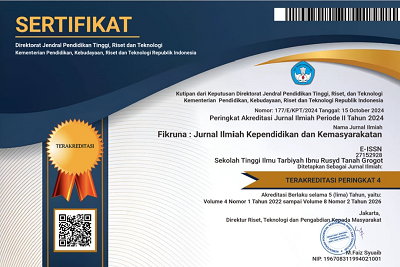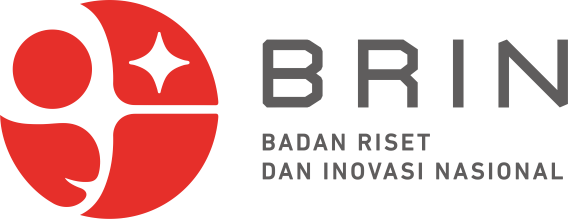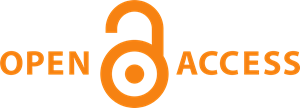INOVASI PENDIDIKAN AGAMA ISLAM DALAM MEMPROMOSIKAN NILAI-NILAI MODERASI BERAGAMA DI DAERAH EKS LOKALISASI
Abstract
This research explores the promotion of religious moderation values ??in the ex-local area of ??Kampung Kajang, with a focus on innovative approaches in Islamic Religious Education (PAI). The method applied in this research is a descriptive qualitative research method. The informants in this research were Islamic Religious Education teachers, community leaders, and the millennial generation in the former localization area. The number of informants was 10 people, determined through the purposive sampling technique. This research was carried out in the Ex. Region. Localization of Kajang Village, South Sangatta. The research results show that the values ??of moderation being promoted include respect for differences, interreligious dialogue, and participation in social activities, which are important for creating harmony amidst diversity. The people of Kampung Kajang show awareness of the importance of tolerance, although challenges in implementation still exist. Innovation in PAI plays a key role, where the integration of moderation values ??in the curriculum needs to be adapted to the local context. It is hoped that the use of social media as a learning tool can increase the understanding of the younger generation. However, there are problems such as students' difficulties understanding the relevance of these values ??and a lack of support from teachers. This research emphasizes the need for training for educators and collaboration between the community, educators and religious leaders to create an environment that supports the implementation of religious moderation values ??through effective educational innovation.
References
Acep, Vera Dwi Apriliani, Etik Murtini, and Gunawan Santoso. �Menghargai Perbedaan: Membangun Masyarakat Multikultural.� Jurnal Pendidikan Transformatif 2, no. 2 (2023): 425�32.
Achjar, Komang Ayu Henny, Muhamad Rusliyadi, A Zaenurrosyid, Nini Apriani Rumata, Iin Nirwana, and Ayuliamita Abadi. Metode Penelitian Kualitatif: Panduan Praktis Untuk Analisis Data Kualitatif Dan Studi Kasus. Jambi: PT. Sonpedia Publishing Indonesia, 2023.
Banks, James A, and Cherry A McGee Banks. Multicultural Education: Issues and Perspectives. Amerika Serikat: John Wiley & Sons, 2019.
Berkowitz, Marvin W, Thomas Lickona, Tamra Nast, Esther Schaeffer, and Karen Bohlin. �The Eleven Principles of Effective Character Education: A Brief History.� Journal of Character Education 16, no. 2 (2020).
Ceci, Federica, Francesca Masciarelli, and Simone Poledrini. �How Social Capital Affects Innovation in a Cultural Network.� European Journal of Innovation Management 23, no. 5 (January 1, 2020): 895�918. https://doi.org/10.1108/EJIM-06-2018-0114.
Dalimunthe, Dewi Shara. �Transformasi Pendidikan Agama Islam: Memperkuat Nilai-Nilai Spiritual, Etika, Dan Pemahaman Keislaman Dalam Konteks Modern.� Al-Murabbi Jurnal Pendidikan Islam 1, no. 1 (2023): 75�96. https://doi.org/10.62086/al-murabbi.v1i1.426.
Derung, Teresia Noiman, Anna Bernadette Sampelan, Hermina Serang Lubur, and Nicomedes San Juang Tukan. �Membangun Toleransi Umat Beragama Dalam Masyarakat Yang Majemuk.� In Theos: Jurnal Pendidikan Dan Theologi 2, no. 8 (2022): 257�63. https://doi.org/10.56393/intheos.v2i8.1275.
Dewey, John. Democracy and Education. Columbia University Press, 2024.
���. The Collected Works of John Dewey. DigiCat, 2022.
Dharma, Dwitya Sobat Ady. �Membaca Peran Teori Ekologi Bronfenbrenner Dalam Menciptakan Lingkungan Inklusif Di Sekolah.� Special and Inclusive Education Journal (SPECIAL) 3, no. 2 (2022): 115�23. https://doi.org/10.36456/special.vol3.no2.a6642.
Driessen, Michael Daniel. �Evaluating Interreligious Dialogue in the Middle East.� Peace Review 32, no. 1 (January 2, 2020): 1�12. https://doi.org/10.1080/10402659.2020.1823560.
Durkheim, Emile. �Societal Transformation And Social Cohesion.� Introduction to Sociological Theory: Theorists, Concepts, and Their Applicability to the Twenty-First Century 87 (2020).
Elvinaro, Qintannajmia, and Dede Syarif. �Generasi Milenial Dan Moderasi Beragama: Promosi Moderasi Beragama Oleh Peace Generation Di Media Sosial.� JISPO Jurnal Ilmu Sosial Dan Ilmu Politik 11, no. 2 (2021): 195�218. https://doi.org/10.15575/jispo.v11i2.14411.
Fitri, Furhatul. �Pendidikan Multikultural Dalam Mengatisipasi Promblematika Sosial Di Era Digital.� AT-THARIQ: Jurnal Studi Islam Dan Budaya 3, no. 02 (2023). https://doi.org/10.57210/trq.v3i02.257.
Fullan, Michael. Teacher Development and Educational Change. Routledge, 2014.
Gawo, Getachew, and Mebratu Tafesse. �The Involvement of Marginalized Menja Society Children in Primary Education: A Case Study of the Bench Sheko Zone, Ethiopia.� Social Sciences & Humanities Open 9 (2024): 100782. https://doi.org/10.1016/j.ssaho.2023.100782.
Gole, Hendrikus, and Raymundus I Made Sudhiarsa. �Pentingnya Teologi Dialog Dalam Menghadapi Intoleransi Dan Diskriminasi Agama Di Indonesia (Perspektif Teologi Dialog Interreligius Armada Riyanto).� Mutiara: Multidiciplinary Scientifict Journal 2, no. 8 (2024): 706�20. https://doi.org/10.57185/mutiara.v2i8.236.
Hakim, Taupik Rahman. �Implementasi Nilai-Nilai Pendidikan Agama Islam Dalam Membina Moderasi Kehidupan Beragama.� Edukasiana: Jurnal Inovasi Pendidikan 1, no. 4 (2022): 192�200. https://doi.org/10.56916/ejip.v1i4.188.
Harefa, Anugerah Tatema, and Berkat Persada Lase. �Peran Pendidikan Dalam Mengurangi Stigma Dan Diskriminasi Terhadap Siswa Dari Kelompok Minoritas Sosial.� Journal of Education Research 5, no. 4 (2024): 4288�94. https://doi.org/10.37985/jer.v5i4.1479.
Heryana, Rohman. �Peran Guru Pendidikan Agama Islam Dalam Menanamkan Moderasi Beragama Melalui Program Kebiasaan.� TA�DIB: Jurnal Pendidikan Agama Islam 2, no. 2 (2024): 199�210.
Ikhwan, M, Dedi Wahyudi, and Afif Alfiyanto. �Peran Pendidikan Agama Islam Dalam Memperkuat Moderasi Beragama Di Indonesia.� Realita: Jurnal Penelitian Dan Kebudayaan Islam 21, no. 1 (2023): 1�15. https://doi.org/10.30762/realita.v21i1.148.
Khair, Hubbil. �Peran Lembaga Pendidikan Dalam Masyarakat Di Era Modern.� Darul Ulum: Jurnal Ilmiah Keagamaan, Pendidikan Dan Kemasyarakatan 12, no. 2 (2021): 24�36. https://doi.org/10.62815/darululum.v12i2.67.
Kiswardhani, Ajeng Muliagita, and Mutiara Ayu. �Memorization Strategy During Learning Process: Students� Review.� Journal of English Language Teaching and Learning 2, no. 2 (2021): 68�73. https://doi.org/10.33365/jeltl.v2i2.1450.
Letasado, Muhamad Rusadi, I Wayan Suastra, and I Wayan Lasmawan. �Analisis Perspektif Kurikulum Merdeka Dalam Pengembangan Kreativitas Siswa Sekolah Dasar Di Daerah 3T.� Mimbar PGSD Flobamorata 2, no. 3 (2024): 250�55.
Li, Rex. �John Dewey and Progressive Education BT - Rediscovering John Dewey: How His Psychology Transforms Our Education.� edited by Rex Li, 309�46. Singapore: Springer Singapore, 2020. https://doi.org/10.1007/978-981-15-7941-7_12.
Mahardika, Bagus. �Implementasi Nilai Moderasi Beragama Pada Mata Pelajaran Pendidikan Islam Sebagai Basis Pengembangan Karakter Anak Didik Di Tumbuh High School.� An-Nidzam: Jurnal Manajemen Pendidikan Dan Studi Islam 11, no. 1 (2024): 81�109. https://doi.org/10.33507/an-nidzam.v11i1.2018.
Malau, Titin Wulandari. �Dialog Antaragama Dan Kontribusi Tokoh Agama Dalam Penyelesaian Konflik Dan Implementasinya Untuk Memperkuat Toleransi.� Jurnal Magistra 2, no. 1 (2024): 1�18.
Mandalahi, Laura, S Ikom Qoni�ah Nur Wijayanti, and M Ikom. �Komunikasi Lintas Agama Dalam Mencari Solusi Konflik Agama.� Jurnal Media Akademik (JMA) 2, no. 1 (2024). https://doi.org/10.62281/v2i1.105.
Miles, Matthew B, A Michael Huberman, and Johnny Salda�a. Qualitative Data Analysis: A Methods Sourcebook. London: Sage publications, 2014.
Mubarok, Ramdanil, and Maskuri Bakri. �Membumikan Multikulturalisme Sebagai Upaya Pencegahan Sikap Radikalisme Beragama.� Ris �lah, Jurnal Pendidikan Dan Studi Islam 7, no. 2 (2021): 252�66. https://doi.org/10.31943/jurnal_risalah.v7i2.178.
Nafa, Yordan, Moh Sutomo, and Mashudi Mashudi. �Wawasan Moderasi Beragama Dalam Pengembangan Desain Pembelajaran Pendidikan Agama Islam.� Edupedia: Jurnal Studi Pendidikan Dan Pedagogi Islam 7, no. 1 (2022): 69�82.
Najmi, Hayatun. �Pendidikan Moderasi Beragama Dan Implikasinya Terhadap Sikap Sosial Peserta Didik.� Jurnal Ilmiah Al-Muttaqin 9, no. 1 (2023): 17�25. https://doi.org/10.37567/al-muttaqin.v9i1.2067.
Orsini, Alessandro. �Symbolic Interactionism.� In Sociological Theory: From Comte to Postcolonialism, 435�84. Springer, 2024.
Patel, Neel K, Conor I Murphy, Kanto Nagai, Stephen Canton, Elmar Herbst, Jan-Hendrik Naendrup, Richard E Debski, and Volker Musahl. �Passive Teaching Is Not as Effective as Active Teaching for Learning the Standard Technique of Pivot Shift Test.� Journal of ISAKOS 3, no. 4 (2018): 193�97. https://doi.org/https://doi.org/10.1136/jisakos-2017-000171.
Patih, Ahmad, Acep Nurulah, Firman Hamdani, and Abdurrahman Abdurrahman. �Upaya Membangun Sikap Moderasi Beragama Melalui Pendidikan Agama Islam Dan Pendidikan Kewarganegaraan Pada Mahasiswa Perguruan Tinggi Umum.� Edukasi Islami: Jurnal Pendidikan Islam 12, no. 001 (2023).
Pratama, Andy Riski, and Maysa Latifa. �Inovasi Kurikulum Pendidikan Agama Islam (PAI) Dalam Mendorong Penanaman Nilai-Nilai Kearifan Lokal.� An-Nahdlah: Jurnal Pendidikan Islam 4, no. 1 (2024): 145�52. https://doi.org/10.51806/an-nahdlah.v4i1.160.
Rahmawati, Siti. �Inovasi Pendidikan Dalam Meningkatkan Strategi Mutu Pendidikan.� Jurnal Pendidikan Bhinneka Tunggal Ika 1, no. 5 (2023). https://doi.org/10.51903/bersatu.v1i5.303.
Refaeli, Tehila, Raghda Alnabilsy, Noam Schuman-Harel, and Michal Komem. �Barriers To Post-Secondary Education Among Marginalized Young Women From Israel�s Periphery.� Children and Youth Services Review 148 (2023): 106914. https://doi.org/10.1016/j.childyouth.2023.106914.
Rumahuru, Yance Z, and Johanna S Talupun. �Pendidikan Agama Inklusif Sebagai Fondasi Moderasi Beragama: Strategi Merawat Keberagaman Di Indonesia.� KURIOS (Jurnal Teologi Dan Pendidikan Agama Kristen) 7, no. 2 (2021): 453�62. https://doi.org/10.30995/kur.v7i2.323.
Rusli, Muhammad. �Merancang Penelitian Kualitatif Dasar/Deskriptif Dan Studi Kasus.� Al-Ubudiyah: Jurnal Pendidikan Dan Studi Islam 2, no. 1 (2021): 48�60. https://doi.org/10.55623/au.v2i1.18.
Siddiqa, Ayesha. �Exploring the Dynamics of Social Capital in Contemporary Society.� Physical Education, Health and Social Sciences 2, no. 1 (2024): 48�55.
Sofianto, Kunto. Tinjauan Kritis Jemaat Ahmadiyah Indonesia. Bandung: Neratja Press, 2014.
Subhi, Muhammad, Ismail Hasani, and Ikhsan Yosarie. Promosi Toleransi Dan Moderasi Beragama. Jakarta: Pustaka Masyarakat Setara. Jakarta: Pustaka Masyarakat Setara, 2019.
Suprapto, Suprapto. �Integrasi Moderasi Beragama Dalam Pengembangan Kurikulum Pendidikan Agama Islam.� Edukasi 18, no. 3 (2020): 355�68. https://doi.org/10.32729/edukasi.v18i3.750.
Syarnubi, Syarnubi, Muhamad Fauzi, Baldi Anggara, Septia Fahiroh, Annisa Naratu Mulya, Desti Ramelia, Yumi Oktarima, and Iflah Ulvya. �Peran Guru Pendidikan Agama Islam Dalam Menanamkan Nilai-Nilai Moderasi Beragama.� In International Education Conference (IEC) FITK, 1:112�17, 2023.
Taylor, Annie, and Gillean McCluskey. ��Alternative� Education Provision: A Mapping and Critique.� Oxford Review of Education 50, no. 6 (November 1, 2024): 798�816. https://doi.org/10.1080/03054985.2024.2373067.
Vygotsky, L, and M Cole. �Lev Vygotsky: Learning and Social Constructivism.� Learning Theories for Early Years Practice. UK: SAGE Publications Inc, 2018, 68�73.
Waite-Stupiansky, Sandra. �Jean Piaget�s Constructivist Theory of Learning.� In Theories of Early Childhood Education, 3�18. Routledge, 2022.
Wardati, Laila, Darwis Margolang, and Syahrul Sitorus. �Pembelajaran Agama Islam Berbasis Moderasi Beragama: Analisis Kebijakan, Implementasi Dan Hambatan.� Fitrah: Journal of Islamic Education 4, no. 1 (2023): 175�87. https://doi.org/10.30868/ei.v12i001.6139.
Yuliana, Evi. �Moderasi Beragama Sebagai Basis Kehidupan Sosial: Telaah Filosofis Dalam Islam Kontemporer.� TADBIRUNA 3, no. 2 (2024): 58�66.
Zajda, Joseph, and Joseph Zajda. �Constructivist Learning Theory And Creating Effective Learning Environments.� Globalisation and Education Reforms: Creating Effective Learning Environments, 2021, 35�50.
Copyright (c) 2024 Siti Munfiatik

This work is licensed under a Creative Commons Attribution-NonCommercial 4.0 International License.



.png)












